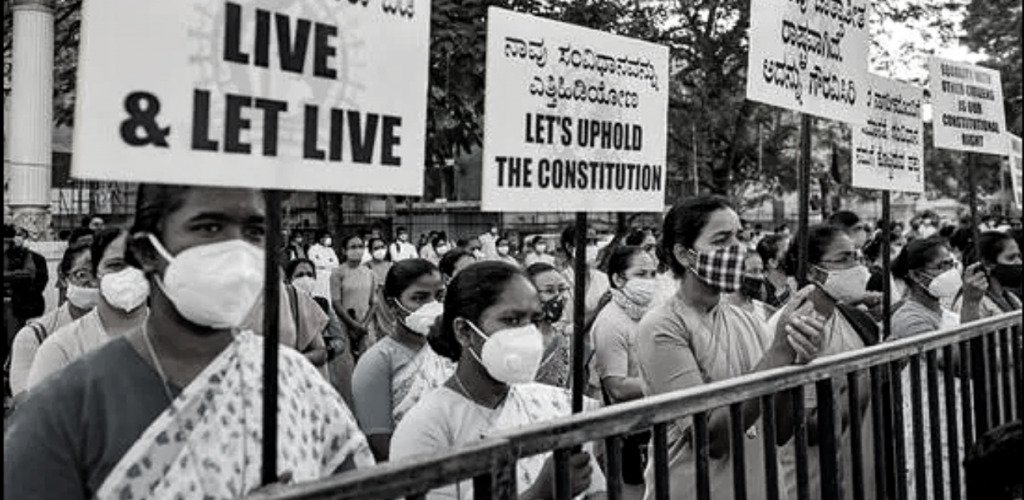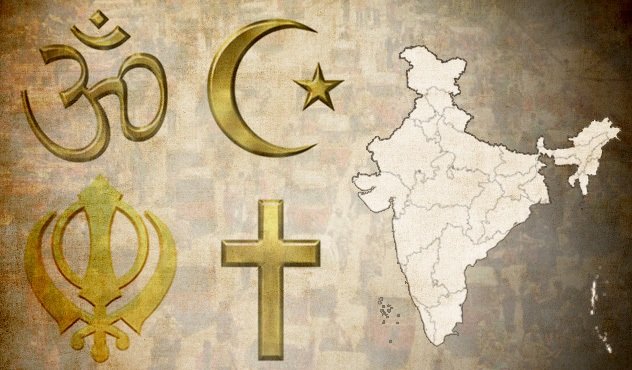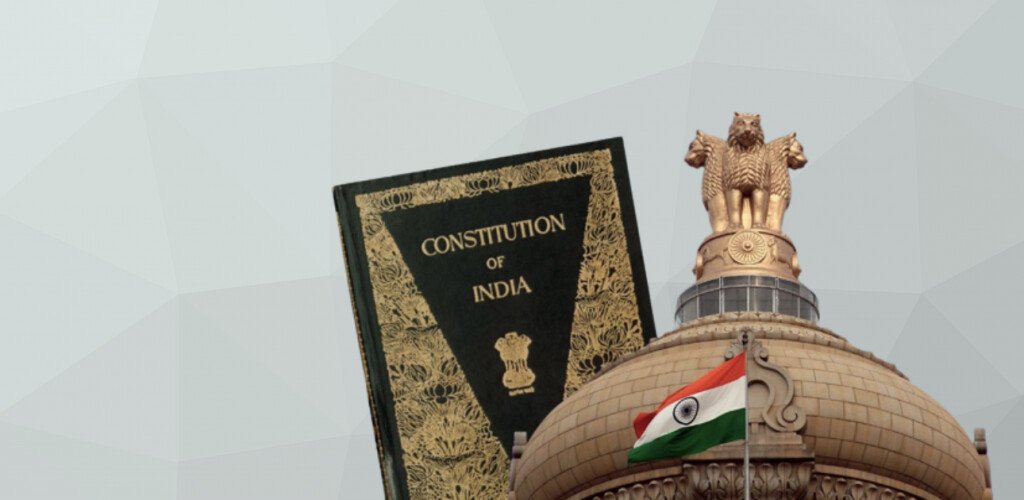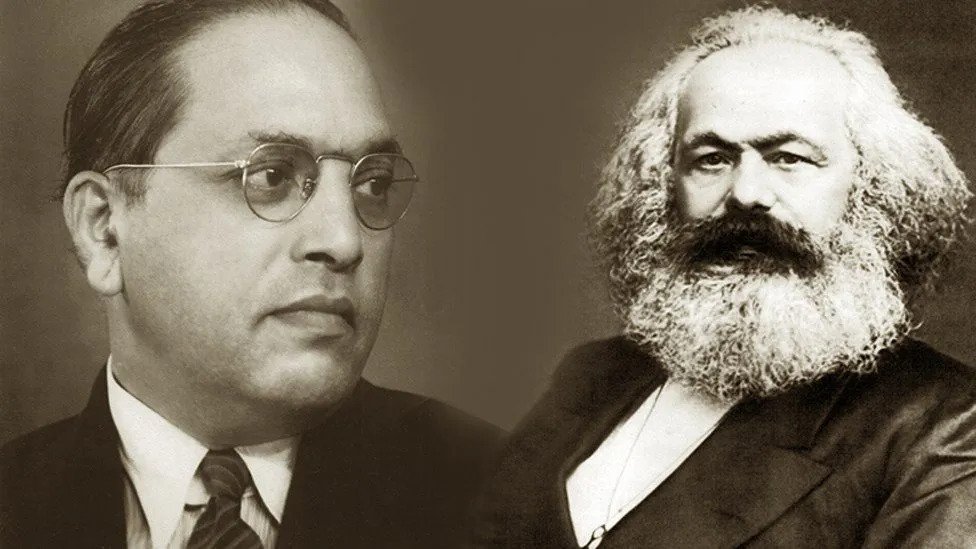By: Mihir Nigam
Religious conversion is a topic that has remained central to the country’s politics. It also gained significant attention in many recent intellectual debates and discussions on freedom of religion. Article 25 of the Constitution grants “freedom of conscience and free profession, practice, and propagation of religion” to the non-citizens and citizens of the country. The questions like what is the scope of the article and whether it also includes “freedom to convert to other religion” have always posed difficulties for those who interpreted the provision.
Many politicians claim that increasing religious conversions across the country and the so called “love jihad” made it an absolute necessity for the legislators to formulate anti-conversion laws and implement them stringently across the State. However, the blatant imposition of these laws not only deters the ‘forced conversions’ but also acts as an impassable wall for the rightful conversions.
The first state to enact an anti-conversion law was the government of Odisha (then Orissa). The Orissa Freedom of Religion Act, 1967 was enacted by the state government to deal with the forced conversions. Section 3 of the Act provided that, “no person shall convert or attempt to convert, either directly or otherwise, any person from one religious faith to another by the use of force or by inducement or by any fraudulent means nor shall any person abet such conversion.” (emphasis supplied)
The following year, Madhya Pradesh also came up with the Madhya Pradesh Dharma Swatantra Adhiniyam of 1968, which was almost parallel to the act passed by Odisha. Instead of going with the term ‘inducement,’ the legislators used the term ‘allurement’ which was defined under Section 2(a) as an “offer of any temptation in the form of any gift or gratification, either in cash or kind; (ii) grant of any material benefit, either monetary or otherwise.”
According to the rules under the Act, anyone who aspires to switch to another faith must first declare their intention to do so to a Magistrate. The District Magistrate must be notified fifteen days in advance by the priest who will officiate the event. The Superintendent of Police, who is responsible for relaying the information to the relevant police station, is then informed by the District Magistrate. The next step is for the officer-in-charge to find out if there are any objections to the proposed conversion.
Both Acts made the offences committed under the act cognisable and imposed a penalty of up to one year in prison and a fine of INR 5,000. In case a minor, woman or a member of scheduled caste or scheduled tribe, imprisonment could be extended up to two years imprisonment, and a fine of INR 10,000.
Naturally, legislation like these which impose such restrictions on the rights of individuals would be subjected to the scrutiny of the courts. Accordingly, both state laws were challenged in the high court of their respective states.
The Orissa Freedom of Religion Act was challenged before the High Court of Orrisa in the case of Mrs. Yulitha Hyde and Ors. vs State of Orissa and Ors. (1972). In this case, while declaring the act void and ultra vires of the constitutional values, the court held that the term “inducement” is ambiguous and many proselytising activities may fall within its scope. Further, the court observed that conversion to religion must be included in the right as far as a Christian citizen is concerned. This is because the true scope of the right guaranteed under Article 25(1) must be considered to broaden the ambit of the propagation of religion. It was also held that the legislature of state lacked the requisite jurisdiction or competence to make the law on the topic of “religion.”
As a result, the court acknowledged for the first time that the right to conversion is a fundamental right under Article 25 because it is a necessary corollary for Christians for their religion to be propagated.
The act, along with the Madhya Pradesh Dharma Swatantrya Adhiniyam, was further scrutinised by the Supreme Court in the case of Rev. Stainislaus vs State of Madhya Pradesh (1977). Here, the court disagreed with the stance taken by the High Court of Orissa and observed that: “the word ‘propagate’ has been used in Article 25 (1), for what the Article grants is not the right to convert another person to one’s own religion, but to transmit or spread one’s religion by an exposition of its tenets.” (emphasis supplied)
The court was of the view that it is important to keep in mind that Article 25 (1) guarantees ‘freedom of conscience’ to all citizens, not just to those who adhere to a particular religion. This implies that there is no fundamental right to convert someone to one’s own religion because doing so would violate the ‘freedom of conscience,’ as it would be different from the effort of a person to transmit or spread the tenets of their religion.
The restrictions provided under Article 25 were used by the court and it was observed that because “forced conversions” have an adverse impact on public order, any right to convert to a different religion is prohibited by Article 25. Public order, morality, and health are constraints on the right granted by this article, and therefore “it cannot be predicted that freedom of religion can have no bearing what-so-ever on the maintenance of public order or that a law creating an offence relating to religion cannot under any circumstances be said to have been enacted in the interests of public order.”
Therefore, the validity of both the acts was upheld by the court and the competence of legislature to pass such laws was accepted and upheld as a legal exercise of legislative authority under the exception of public order to Article 25 of the Constitution, stating that the right to convert others is not included under the ambit of this article and that forcible conversions may incite communal enmities that lead to a breach of the public order.
The petition filed by Upadhyay seeks directions of the court against the prevailing forced conversions and the gap in criminal legal system to persecute the perpetrators of the crime of forceful conversion. It says that a special law must be enacted against forced conversion, or the act should be made an offence under the Indian Penal Code.
Acknowledging the gravity of the issue, a Justice M.R. Shah-led division bench of the Supreme Court asked the Union Government to step in.
The issue of forced conversion needs enough deliberation on part of the Union Government, as the issue encompasses many issues and the right of individuals is at stake, which cannot be constrained without reasonable grounds and enough discussions. The common view advanced by intellectuals in this regard is that the forced conversions would invariably fall under the purview of the Indian Penal Code, and that an anti-conversion law would only serve to impede voluntary conversions, particularly those made by lower caste individuals.
The main criticism that these anti-conversion laws attract is that they breach the right to privacy of an individual. A person changing their religion would like to make public their conversion on their own terms or when they think it is the right time to make public the same. However, almost all the states have enacted anti-conversion laws requiring a person converting to give notice to the competent authority and public of the same.
Section 5 of Madhya Pradesh Dharma Swatantrya Adhiniyam states that intimation is to be given to District Magistrate with respect to conversion. The section provides that: “Whoever converts any person from one religious faith to another either by performing himself the ceremony necessary for such conversion as a religious priest or by taking part directly or indirectly in such ceremony shall, within such period after the ceremony as may be prescribed, send an intimation to the District Magistrate of the district in which the ceremony has taken place of the fact of such conversion in such form as may be prescribed.” (emphasis supplied)
Just like Madhya Pradesh, Himachal, Jharkhand, Gujrat, Chhattisgarh, and Uttarakhand have also incorporated such provisions under their respective anti-conversion laws, which require converts to give notice/intimation to the authority before/after a prescribed time-period.
The Himachal Pradesh High Court, in Evangelical Fellowship of India and Anr. versus State of Himachal Pradesh (2012), declared a provision of the Himachal Pradesh Freedom of Religion Act, 2006 as unconstitutional because it required the citizens to notify the authorities of their desire to convert to other religion.
Recently, in an order regarding Section 10 of the Madhya Pradesh Freedom of Religion Act, 2021, the Madhya Pradesh High Court, in Rev. Suresh Carleton & Ors. versus The State of Madhya Pradesh, has supplied emphasis to an observation of the Supreme Court in Paragraph 298 of its judgement in KS Puttaswamy case that the Constitutional right to the freedom of religion under Article 25 has implicit within it the ability to choose a faith and the freedom to express or not express those choices to the world.
Therefore, even if the Union Government goes ahead with formulating a special law on the subject of ‘forced conversion,’ all the problems and issues regarding the state-enacted anti-conversion laws must be taken into consideration. The special law should be coherent with the fundamental rights guaranteed under the constitution and should not be based on vagaries. The law should not appear to be arbitrary or targeting a particular community in furtherance of political motives or ideologies. (IPA Service)







